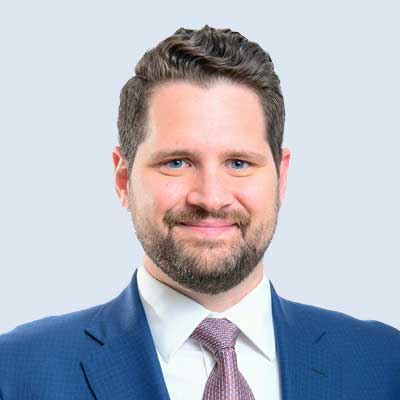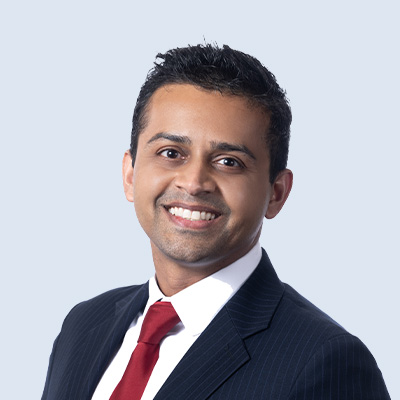Raj: Hello everyone. This is Raj from the Alexander Group. I’m here with my colleague Sean Higgins. We are both leaders in our life sciences and analytical instruments practice. Alexander Group is a revenue growth consulting firm who partners with companies to help solve go-to-market and commercial issues. And today we’re here to share an overview of our latest life sciences study. In the previous episode, we heard about how companies are making a lot of investments in the specialization layer, and that has led to a decrease in efficiency, leading to an increase in cost. Why is that? Why is it that companies are making investment in the specialization layer? That’ll be the topic of discussion today. The biggest driver of the investment in specialization is in terms of the headcount. Companies are making significant investment in the field application scientists, the product specialist roles relative to the organic seller. A key driver for this is the customer needs. Customers are stating an explicit need to have more scientific, more application workflow focus discussions and because of that, companies are meeting that need by making investment in the specialization layer. So one of the key trends in terms of numbers, right, 10% increase in terms of growth in specialists per sales rep from 2019 to 2021. That’s a significant increase in terms of the investment in the specialization layer, especially the consumables companies are making a big investment as they add product workflow and segment specialists. I’ll have Sean talk us through some of the headcount ratios, both in North America and in Europe and other countries as well. He’ll talk about the specialist layer, the product specialist layer, the field application scientist, and we’ll come back and talk about some specific reasons and examples of how companies are making this investment. Sean, over to you.
Sean: Thank you, Raj. As Raj alluded to in the first trends podcast, growing is no longer enough. Teams are prioritizing taking market share. This is leading to a trend across the industry with organizations investing into their sales model. And as Raj mentioned two specific roles, roles that bring science to the forefront through market and product specialists, but also that field application scientists to support specific workflows and applications. If you participate in our studies in the past we saw an increased focus on teams transitioning from product-centric sales teams to account management models. This account management function has been seen as a success over the past few years and is expected from our customers. But there is now a focus to support those account managers with specialist. Folks that understand subsegments like CMDOs or advanced modalities like cell gene therapy or a mix of different omics out there like proteomics, metabolomics. And this is happening across the globe in every region, including North America, Europe, APJ and China. Companies are investing into more specialists to support their account managers. Typically, these roles are being deployed on complex products and solutions and certainly up market on the largest opportunities. For other roles, there are pockets of organizations bringing more value-added resources on the post sales experience. This is usually immediately after installation for instrument companies. These roles include implementation managers and customer success managers. These roles help provide a better post sales experience. They certainly support with installation of bulk orders, education and usage of the instruments right after delivery. So just thinking about a few of these roles, Raj. What have you seen in the market?
Raj: Yes Sean, I think the biggest thing, as you said, right, is the investment in the field application scientists in the pre-sales environment. One key trend that we are seeing that customers stating over and over again, right. They would prefer to have the science discussion fairly early in the sales process. One big trend is customers will go online, they’ll look at all the different instruments or products that a vendor has to offer. They’re fairly well versed in the instrument and the features. That’s less of a concern to them. What they’re really interested in is how do they use that instrument to get the results that they’re really interested in. So for example, for a particular application workflow in biopharma, they really want the vendor to show up with the right science background specialists who are able to help them with that. Many companies are also now investing, as you said, in that post-sales customer success role as well, right. To make sure that there is a clean handoff and a successful handoff from the pre-sales to the post-sales. So customers will have success with their application workflow right after they install the instrument. So that’s something that the customers are really interested in. One of the key trends we’re also seeing is that if they don’t see immediate results in terms of their investment in trying to do a drug modality, then they may end up being a generic, right, as opposed to a market leading drug. So for all of those reasons, speed to market being a key one, companies are making a big investment in the science layer.
Sean: And it’s a good call. Just reminds me, these roles, the FAS and Customer Success manager, although they support the sales team, they’re really not sales minded. They’re really there to support with education and training and certainly help with the application part.
Well, Raj, it’s been great chatting with you specifically talking about specialization investments. To learn more, please visit our website at alexandergroup.com. We want to thank everyone for listening and we’re excited to share more in the future.

